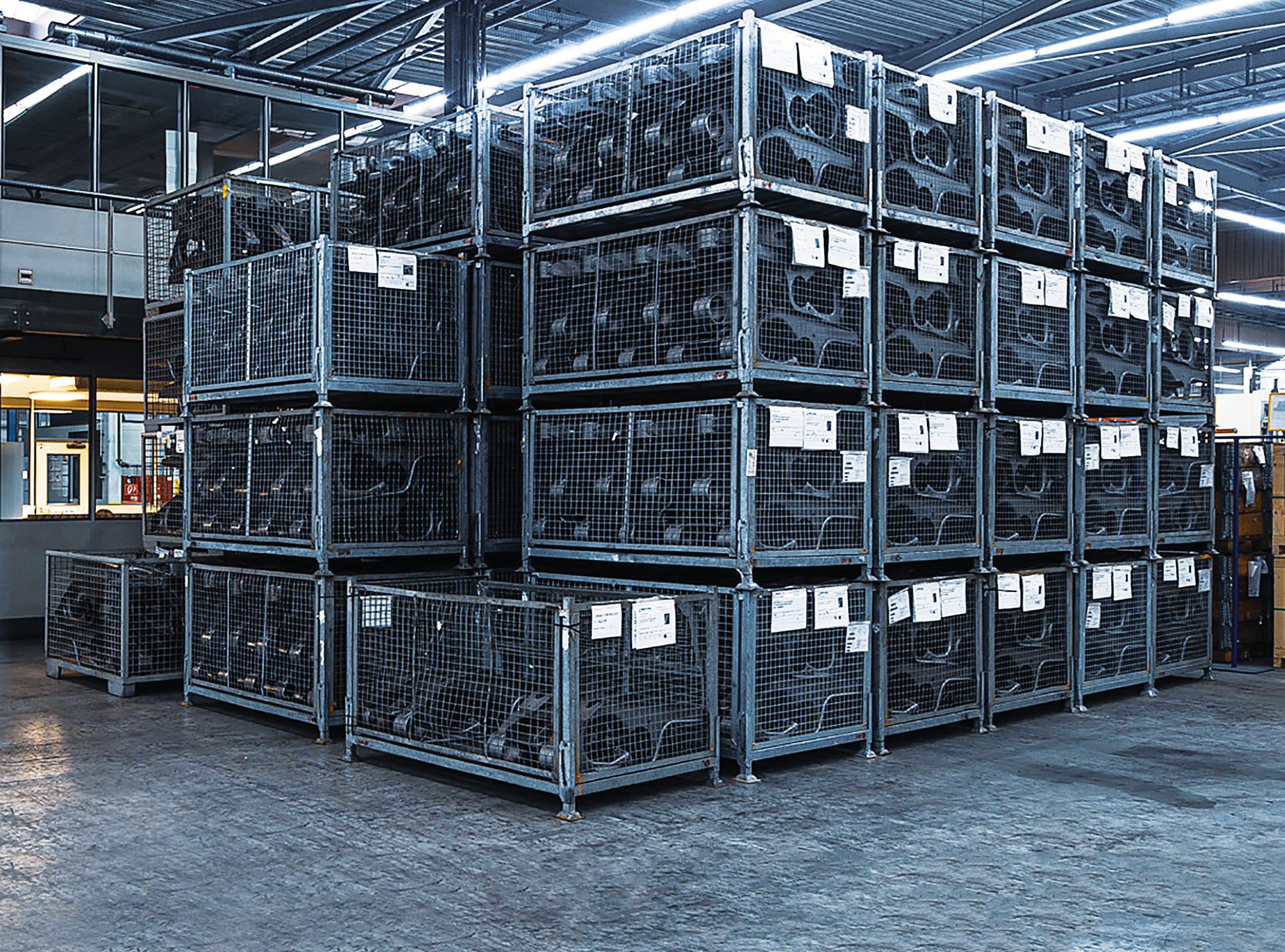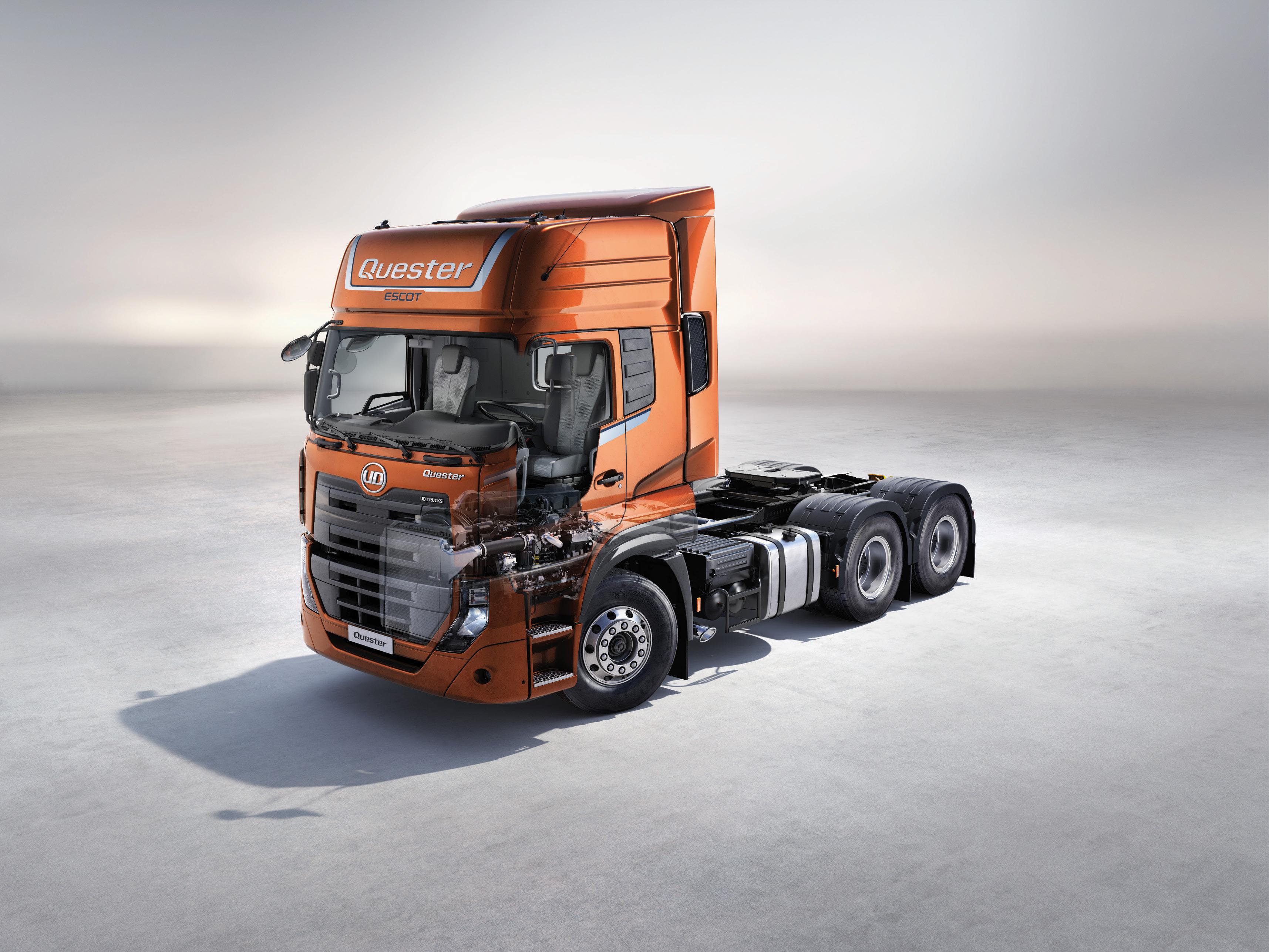
12 minute read
FEELING GREEN
Looking into the medium-term, COVID-19 raises multiple issues for public transport. Patronage is unlikely to recover for many months, due to economic recession and as passengers continue to feel anxiety around the health risks of crowded carriages and vehicles. This may sharply affect the financial performance of transit authorities and operating companies and undermine the business case for investment in new or improved services. The design and operational standards of infrastructure, vehicles and equipment is also likely to undergo review, not least to be more prepared for any future pandemic or equivalent threat.
This will require a focus on credible scenario planning, demand forecasting and associated economic and financial analysis.
We are unlikely to go back to normal – there will be mediumand longterm implications”
Yet such work will be essential to ensure the future viability of public transport, without which private car ownership will increase and urban traffic and congestion problems escalate as people seek personal protection and isolation rather than mass transit.
Right now, we are in the midst of the Crisis. In the space of six weeks, our world has been turned upside down. It will take all our time and attention for the foreseeable future just to get through it.
We will, however, prevail. This too will pass, and we will emerge stronger and more resilient afterwards.
There are various scenarios for the duration of the pandemic, how it will end, and timing and form of the recovery. Working out how these scenarios will play out in different parts of the World, and via connectivity within and between regions, is challenging. We will need to recognise, accept and manage uncertainty.
COVID-19 is unlikely to vanish as quickly as it arrived; there may be several months ahead where we need to manage residual infectivity as the economy, and the transport system, restarts. After this current wave of global infection, a second or even a third wave cannot yet be ruled out. We will need robust, yet practical, processes, procedures and technologies to be ready and be able to respond effectively.
It also seems inevitable that some of the impacts of COVID-19 will be permanent and transformational. A “new normal” will emerge. This could be positive as well as negative, but how the future shapes up depend on how we approach the task.
SOME LONGER-TERM CHALLENGES AND OPPORTUNITIES BEYOND COVID-19
Challenges
Falls in demand for transport mean reductions in operator and transport authority revenue and financial performance
Question over whether mass transit faces and “existential” threat and struggle to retain ridership
Potential for increased car purchase and use due to health concerns over public and shared transport
Some business continuity plans, and processes, have been found wanting and must be re-written
Short-term business performance will be painful – jobs will be lost and not all transport entities will survive
Medium-term funding of capital infrastructure projects may become limited and harder to find
Public agencies have already cut their budgets and may seek to pass this onto suppliers in project cancellations, postponements and contractual savings
Opportunities
Transport and logistics recognised as an essential service
There have been major environmental benefits (e.g. air quality, noise, carbon) – how can these be maintained?
Likewise, road traffic accidents and casualties have decreased dramatically, should be maintained at low levels
WFH has gone better than expected for many organisations and will inform future management practices, office design as well as individual lifestyle choices and commuting patterns
Some transport focus areas will grow – Business resilience (done properly), digital services, sustainability, supply chain management, automation, self-driving transport
Travel Demand Management – Why did we travel so much?
Capital projects & public expenditure will continue and may be treated as economic stimulus – the discipline of strong prioritisation and budget control should continue
• FUEL MANAGEMENT SYSTEM. • FLEET MANAGEMENT SYSTEM. • TANKS GAUGES. • GPS TRACKING SYSTEM. • VIDEO SURVEILLANCE. • PARKING & ALARM SENSOR. • FUEL LEVEL SENSOR. • TYRE PRESSURE SENSOR.
MONITOR YOUR ASSETS & OPERATIONS 24/7 BEST CERTIFIED SOLUTIONS;
SAF-HOLLAND on how it is helping transportation be sustainable
SAF IS FEELING GREEN

SAF-HOLLAND tells T&FME that its latest annual sustainability report is its widest-ranging yet. The firm says the 2019 Sustainability Report shows how the company is contributing to a more sustainable transport industry and which activities are already showing results. The report is available now in a reader-friendly, interactive PDF format and “for the first time includes all production sites worldwide, providing a thorough look at product innovations, supply chains, CO 2 management as well as environmental and climate protection.”
All 24 production sites of the supplier for commercial vehicle parts in the four regions EMEA, Americas, APAC and China all feature and Alexander Geis, CEO of SAF-HOLLAND commented that, “this highlights the global alignment of our management approach to sustainability in our business.”
According to Geis, sociopolitical discussions about sustainability are an important factor which has influenced the actions of the supplier for commercial vehicle parts in 2019. He added that company is evolving to meet changes in regulations and the promise of data-driven technology.
Recording and analysis of the environmental impact at all sites now allows the company to provide complete data, for example on the energy consumption
Product innovations which reduce weight allow us to save fuel and reduce greenhouse gas emissions”
of individual factories. On this basis, SAF-HOLLAND says it will be able to identify hot spots at the different levels of the product life cycle in the future and take targeted action, such as lowering the emission of greenhouse gases. The medium-term objective is a climate strategy which systematically identifies the requirements of climate change in corporate risk management while using these as new business opportunities.
“We are convinced we will contribute significantly to a more sustainable transport industry,” said CEO Alexander Geis. “We put our focus on lightweight construction, durable quality products, date-driven fleet management and electrified drive axles.”
To examine and improve all environmental influences from a complete axle unit, for example, SAF-HOLLAND generated a comprehensive life cycle assessment for a Trio axle unit and examined different usage scenarios. The phase of product use during driving makes up the largest part of the life cycle. The crucial parameter here is fuel consumption.
“Product innovations which reduce weight or bearing friction allow us to save fuel and effectively reduce greenhouse gas emissions. We have been working on this as a priority for several years and will continue this focus in our development work in the future,” explained the SAF-HOLLAND CEO.
The axle specialist sees extended opportunities in the commercial vehicle market for its products and systems which are under continuous further development with regard to weight reduction and durability.
The SAF INTRADISC plus INTEGRAL premium axle, for example, has been available in a lighter version since 2019, with a weight reduction of eight kilogrammes. The SAF TRAKe and SAF TRAKr electric trailer axles are another successful example from the SAF-HOLLAND range: They use the energy gained from regenerative braking to charge batteries or run electrical equipment.
SAF TIRE PILOT meanwhile is a technical solution for lowering CO 2 emissions: The tyre-inflating system keeps tyre pressure constant, even with puncture damage, reducing road load and therefore fuel consumption. It also makes a spare tyre superfluous, which saves up to 160 kilogrammes.
Digitalisation solutions also support fuel efficiency: In the SMART STEEL concept, SAF-HOLLAND intelligently links mechanical and digital components, for example in tyre pressure management. The TrailerMaster system additionally supplies fleet managers with useful operating data in real time, which can be used for optimum planning of operating periods or maintenance intervals of the trailers.
One of the key messages from the report is that environmental responsibility does not stop at the factory gates.
In 2019, SAF-HOLLAND thoroughly examined the topic of sustainability in the supply chain. The company considers compliance with this standard as an important added-value factor. Permanent monitoring of business processes also
TRYING TO GET LIGHTER
Geis says n 2019, the company is concentrating on lightweight construction, durable quality products, datedriven fleet management and electrified drive axles.

TAKING A LOOK AT THE CHAIN
SAF-HOLLAND reviewed sustainability in the supply chain. It considers compliance with this standard as an important ‘added-value’ factor.

HOW SAF-HOLLAND HAS CHANGED FOR THE CORONAVIRUS
SAF-HOLLAND has taken wide-ranging measures globally to counter the spread of the coronavirus. These include the implementation of a Global Emergency Response Team which advises the Group Management Board on the current situation, prepares and coordinates the materials needed for decisions and monitors communicative and operative measures. In this context, travel rules and a provision for mobile working were decided at an early stage and extensive measures to ensure social distancing implemented.
allows risks to be identified in the long term, evaluated and eventually minimised. Consequently, SAF-HOLLAND can base storage concepts or delivery routes on potential climate change hazards, for example extreme weather events such as heat waves or flooding. The same applies to the supply chains and own production sites.
All suppliers have to undergo an audit process to qualify as a subcontractor for SAFHOLLAND. They receive a questionnaire for self-certification, for example on issues of environmental protection or human rights.
Current audits - conducted throughout the Group in 2019 for 56 suppliers of production materials - have shown that all audited partners meet the required
standards. To further raise awareness among auditors and purchasers and to derive relevant topics in individual regions, SAFHOLLAND has added sustainability criteria to the self-certification and communicates its updated Code of Conduct to all suppliers. The guideline for value-based and legally compliant conduct was first released in 2013 and was comprehensively revised and updated in 2019.
Governments should encourage collaboration between cities that have similar problems.
Taking on COVID-19
After a first quarter that developed generally as planned, the SAF-HOLLAND Group has had to adjust production in its global production network site specific in response to the global spread of the COVID-19 pandemic, taking into account the respective requirements.
Two German plants in Bessenbach and Singen as well as the production and assembly plants in Turkey, Italy, Brazil, India and South Africa as well as some sales companies all had to take on measures ranging from introduction of partial short time work in Germany to temporary site closures – “largely by official order”.
The company says the duration and extent of the production cutbacks will be adjusted flexibly to the status of the supply chains and the sales markets.
Despite this, both service and the supply of spare parts remains guaranteed without restriction and customers of SAF-HOLLAND can be supplied with spare parts at any time.
The company formally opened a new plant in the Chinese province of Yangzhou last November but says that production there has generally returned to normal with the first deliveries to customers have taken place.
“Our top priority is to protect the health of our workforce, keep our supply chain as intact as possible and to minimize the impact of the crisis on our customers,” says Geis. “We have initiated all the measures needed for a flexible adjustment of the production capacities and for an internal COVID-19 emergency response. We will react immediately and flexibly to future developments. It makes me happy to see how intensive the dialogue is between our customers and business partners, but also within the organisation, to master this challenging time together.”
TEST AT YOUR LEISURE

Peugeot cars can now be brought directly to an interested customer’s home address after the UAE began to advise people to stay at home and exercise social distancing during the COVID-19 outbreak.
Peugeot says its Valet Test Drive and Service programme will help UAE drivers to experience the brand’s models from the comfort and safety of their own home.
According to Peugeot, showrooms across the UAE have taken measures to protect customers and employees alike, starting valet test drive and remote maintenance services.
“The programme aims to bring a whole new experience to customers from purchasing their new car to servicing their current model,” said the firm in a statement.
A dedicated website uae.peugeot.com/ valet-test-drive has been launched which provides information about the car they are interested in and book a Valet Test Drive.
A sales executive will then contact the customer and go over the details of the model as well as location and time where they would like to experience the car, the company explained.
Cars are thoroughly sanitised ahead of delivery with in-depth tours of the car adhering to strict precautions to maintain social distancing and hygiene standards.
If the customer is happy with the demonstration, a personalised letter is sent to the them with the price breakdown to finalise financial proceedings, before the car is registered and delivered to the new owner.
“It is difficult for everyone right now, however we are always determined to keep our customers well-served and safe, whether that be while buying the car or after the purchase has been done,” said Rakesh Nair, managing director, Groupe PSA in the GCC.
“The idea is to improve the process and customise car ownership, not only for current times, but for the future as well.”
Customers in Dubai and the Northern Emirates, where the brand is represented by Swaidan Trading, can also access the Valet Service Program via uae.peugeot.com/services/valet-service and have their cars serviced at their own home.
Cars are then taken to a service facility and returned to the customer having been fully sanitised. Peugeot starts delivering cars to
UAE drivers to test at home
NEXT ISSUE: T&FME TALKS TO THE INDUSTRY TO FIND OUT THERE PLANS FOR A POST-COVID-19 FUTURE AND MUCH MORE!

sustainability can’t be bought
It can be borrowed - from future generations - or it can be earned from each and every aspect of your operation through a consistently focused and forward thinking mindset. That mindset is a vital part of the Scania DNA - and we’d like to pass it on to you.







